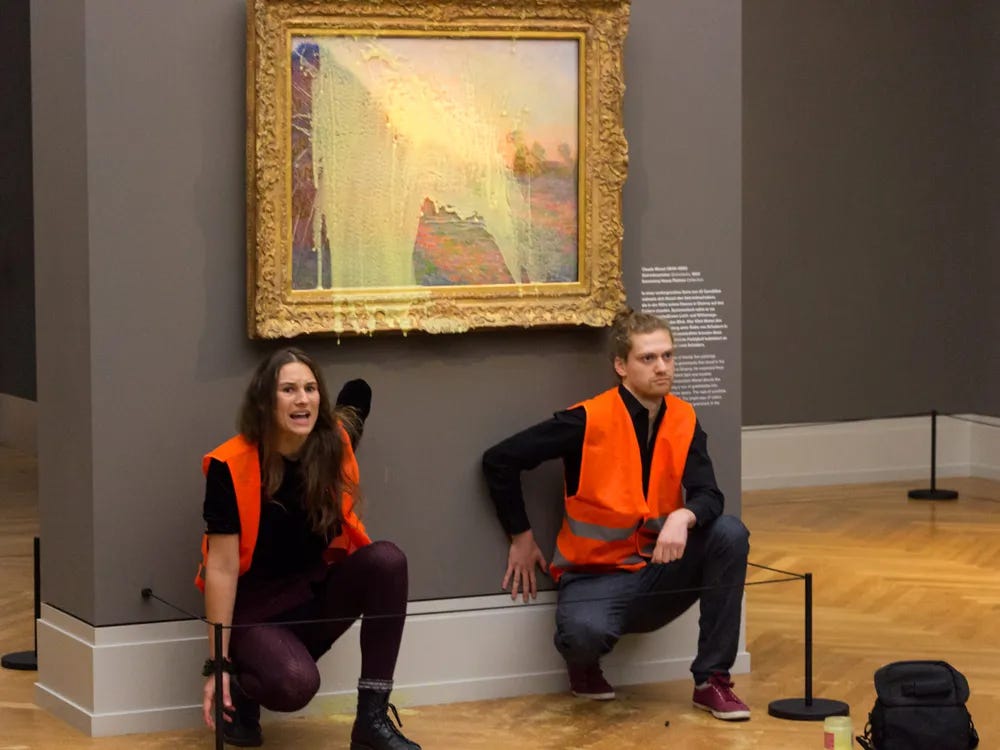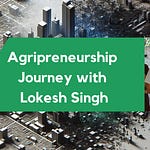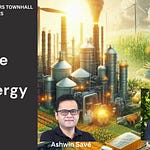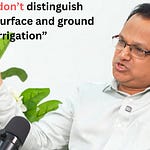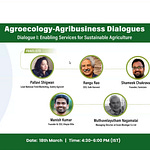At Agribusiness Matters, my long-term mission is to build a durable body of work that elucidates systems thinking principles from real-world agritech/ agribusiness contexts. Except for my Annual 2023 Agribusiness Matters Report Card, I have never talked directly about Systems Thinking in this newsletter and never invited a guest to talk about Systems Thinking.
Until Now.
Mihir Mathur and I go a long way back in time and share a similar “curve benders” origin story.
He was a finance grad who met a systems thinker serendipitously and transitioned his career from being an equity analyst to becoming India’s foremost applied systems thinker, working on climate change, sustainability, and livelihood issues.
And so I asked him: Why do folks from finance and investing (I can give you so many examples)have a strong predilection to get into systems thinking? What is the relationship between thinking through the lens of finance and thinking in systems?
His answer was fascinating: Only a true atheist can become a true theist
Given Mihir and I started our explorations on Climate Change, Ecology and Systems Thinking together almost at the same time- In 2011, Mihir and I were the only participants from India at an international conference on “Inner Dimensions of Climate Change”- this conversation became a good opportunity to do balance sheet reconciliation of how our opinions and perspectives about Climate Change have shifted over time.
And so I asked him:
How have you reconciled how the system continues to chug along, creating a further mirage of continuity? Do you see that kind of anomaly or does it bother you as an anomaly or do you have a particular theory as to why it continues to chug along?
Mihir Mathur gave an interesting case study of how Cape Town’s water crisis to explain his theory.
This conversation also helped me birth a new word: Systems Washing. Today, everyone is talking about Systems Thinking while continuing to chug along with the status quo and so I asked him: What BS (*bullshit) indicators could help us distinguish Systems Thinking from Systems Washing.
At Agribusiness Matters, I have been developing a few heuristics to distinguish Systems Thinking from Systems Washing
Mihir shared how he looks at models closely to evaluate the soundness of Systems Thinking approaches and made a profound, under-appreciated point: Thinking in Systems is far more important than creating models of systems.

While thinking in systems may be fairly important to deal with the larger questions of Climate Change, how do we deal with the current predicament of a post-pandemic world where there is no such thing as a shared sense of reality?
And so I asked him: Are we even existing in a shared world when there is no such thing as a shared reality to begin with?
Mind you, given Trump’s ambitious plans for the Climate Change Denial Agenda when he comes back to power (I have a hunch, he will), these questions no longer carry the luxury of being philosophical and abstract. They have real-world consequences.
Mihir, who has been regularly attending COP events for quite some time, shared an intriguing zen perspective: “Half of the world is sleeping while we are talking...We need to find alignment in small pockets - localized circles of change.”
His interesting response helped me explore one of my inner dilemmas deeply with him: What is the trade-off between a fractal approach to change vis-a-vis fighting against change?
Whether you are an individual or an organisation, when you are dealing with Climate Change, your response could be of these two types: If you believe in the “fractal approach”, you are working in your local contexts, your local community, your local system and pretty much filter out everything else as noise.
As an agritech analyst writing Agribusiness Matters exploring the digital transformation of agriculture in an age of runaway Climate Change, I have been helping founders and investors think in systems to prepare ourselves for the future. In doing so, I also strive to motivate several bright young minds to work in agriculture, while the world around them advises them to move away from agriculture. Beyond this, would I be interested in blocking and agitating over a fossil-fuel pipeline?
Most likely never.
On the other hand, there are plenty of activists who find it morally responsible to throw mashed potatoes at Monet’s “Grainstacks” in Germany and “fight” against Climate Change.
Which approach is right? Should we “fight” against the system at large or should we embrace our fractal nature of existence and concentrate only on the fractal system we deal with?
In response, Mihir shared his profound unease with his struggles to buy a home, stemming from this dilemma: If the larger system is unsustainable, does it help if we make the smaller system sustainable? In other words: What is an optimal distance to maintain from the destructive system devouring us and the planet from within?
This conversation, as you can see, was deeply personal for both of us and helped me with a lot of clarity on several fundamental questions of everyday motions that I go through when I work, consult and write on issues of Climate Change and Sustainability in food and agriculture systems.
We spoke about India’s struggles to modernize its systems and the importance of “missions”; how few of us are responding to climate change by not having babies and why children are natural system thinkers; the real difference between Climate Change adaptation and mitigation; understanding the relationship between food, land, water systems and a lot more.
I hope you find the conversation as much precious as I did:)
So, what do you think?
How happy are you with today’s edition? I would love to get your candid feedback. Your feedback will be anonymous. Two questions. 1 Minute. Thanks.🙏
💗 If you like “Agribusiness Matters”, please click on Like at the bottom and share it with your friend.



